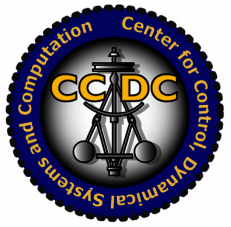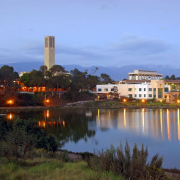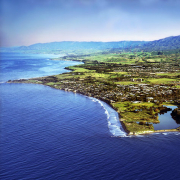Overview

About the CCDC
The Center for Control, Dynamical Systems and Computation (CCDC) was founded in 1991 to bring together faculty, students, and visitors affiliated with various departments on the UCSB campus. Currently, the Center consists of 22 faculty and around 80 graduate students from the Departments of Mechanical Engineering, Electrical Engineering, Chemical Engineering, Mathematics, and Computer Science. Our common goals are to facilitate interdepartmental cooperation in control engineering, dynamical systems, and computation for students and faculty at UCSB and to provide a forum for the scholarly exchange of ideas about these subjects through distinguished lectures, seminars, conferences, scholarly meetings, and publications. The Center occupies a prominent position as a world leader in its field due to the outstanding UCSB faculty and students who choose to affiliate with it, as well as the wealth of activities it sponsors.
The scope of the Center's contributions to the field can be measured by the wealth of publications and professional activities of its members. Numerous honors bestowed upon Center members indicate the Center's recognition and international stature (See Awards and Honors). Graduates and Post-doctoral associates of the Center fill prominent research positions in industry and academia throughout the world. Recent Center graduates occupy or have accepted faculty positions in leading universities including the University of Minnesota, University of Illinois Urbana-Champaign, Johns Hopkins, Iowa State University and our sister campuses UC-San Diego and UC-Berkeley.
Interdisciplinary Cooperation
Faculty and their students are encouraged to be part of the Center as the best way to enable cross-disciplinary teamwork in which theoretical concepts, computational methods, and engineering design are organically merged. The common interests and cooperation among Center members are evidenced in the frequent cross-listing of courses and joint projects and publications. Interactions among Center faculty create an environment in which Center members benefit from the expertise across several engineering disciplines in addition to applied mathematics and scientific computation. Areas of expertise within the center include: system theory, robust control, nonlinear control, adaptive control, optimal control, process control, hybrid systems, system identification, stochastic control, cooperative control, distributed control, systems biology, dynamical systems, and scientific computing.

Activities
The Center focuses on initiating and coordinating research projects rich in opportunities for cross-disciplinary investigations and applications to industrial, environmental, transportation, and defense systems. To that end, the Center organizes workshops, short courses, and publishes a technical report series. The Center's weekly seminar series bring leading experts in the field who are vital components of the Center’s rich and stimulating environment. The Center offers a comprehensive graduate program in which MS and PhD students can pursue their studies across several engineering departments. Courses covering virtually every area of control and dynamical systems are regularly offered (See Graduate Courses). The Center offers post-doctoral positions and regularly hosts visiting faculty to facilitate inter-institutional and international cooperation.




